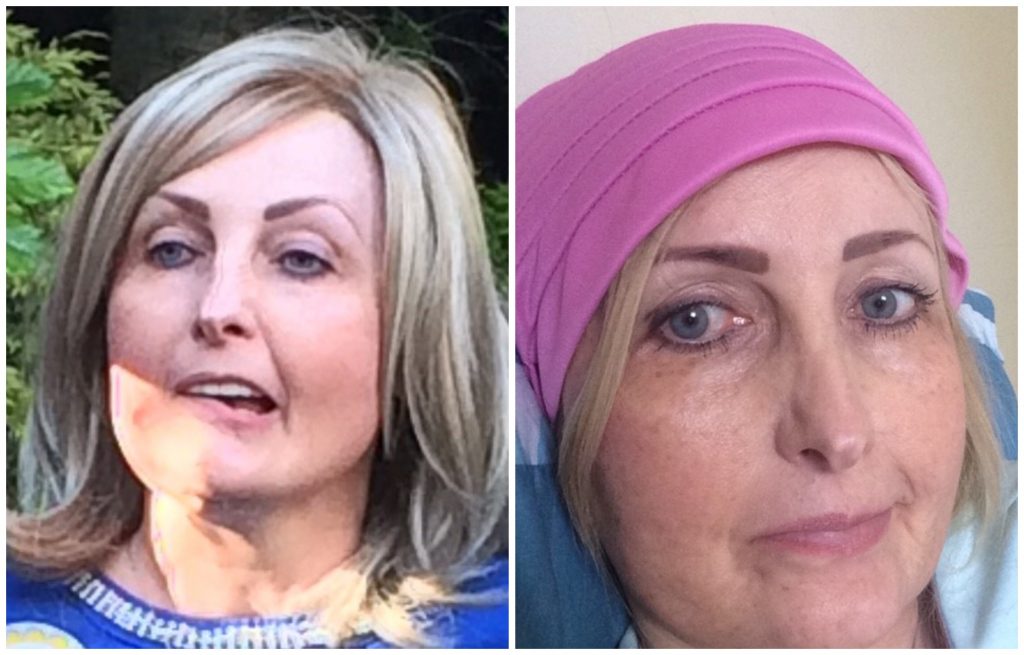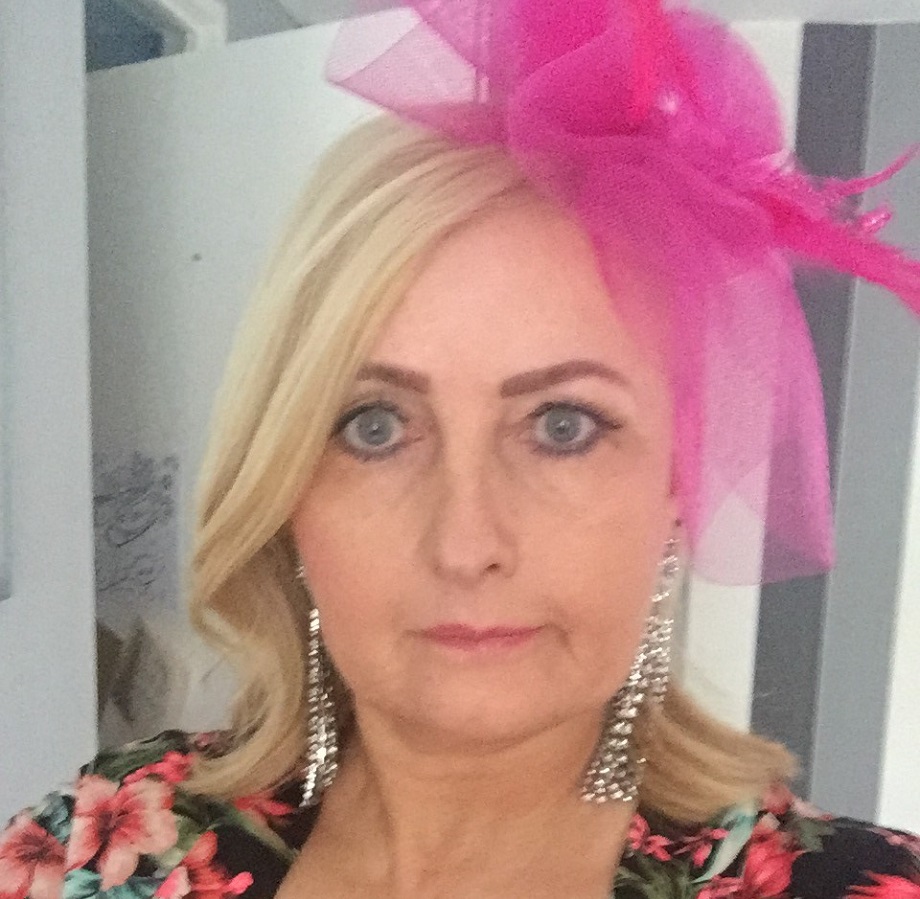It was 1988, I was 24, and I kept getting reoccurrences of Bell’s palsy. The hospital decided to do a MRI scan. It showed a large growth, which turned out to be a cholesteatoma, a non-cancerous tumour.
I had to have it removed as it was growing, and it was ready to branch out into my brain. I was told that after the operation I would have a paralysed face on one side and no hearing on the affected side. It was scary knowing I was going to lose my smile for life. I had already had a taste of not being able to smile when I kept getting Bell’s palsy – it wasn’t nice with strangers asking me things like “What’s wrong with your face?” I knew I would have to live with more comments like that.

Sheila has Bell’s palsy which affects her smile. She also underwent chemotherapy for cancer which meant she lost her hair.
After my operation, I didn’t go out for six months. I was a single mum with two young children and it was hard going. When I did eventually start going out I would wait for it to get dark to go to the corner shop. I felt like a freak.
I just tried to get through each day, but not being able to hear on one side didn’t help. If I misheard when people spoke, they would notice my face, and I would then get treated like I was mentally impaired.
As time went on the way I look continued to be a struggle for me. I’ve had people say nasty comments and I’ve had nowhere to turn. My friends and family have always said you look fine, but they don’t really get it. I’ve had lots of counselling over the years, but having a visible difference has still held me back from being the person I am inside.
Three years ago I got breast cancer and had to have a mastectomy, chemotherapy and radiotherapy, I lost all my hair which was devastating to me. Not for the loss but because I used to use my hair as a mask to cover the affected side of my face. I felt like I was disfigured from the waist up – it was hard going, but it has changed my life.
I bought wigs and I took the first for a “test drive” around my local Asda. I was looking at people to see if they were looking at me but everyone just went about their business. That was the day I realised I am stronger than I think.
I have so much empathy for everyone who comes to the group meetings. Good or bad, it’s a place where everyone shares their experience.
When a physiotherapist from my local hospital asked if I would co-facilitate a support group in Liverpool for people with facial palsy, I jumped at the chance. The group has been running for two years this month and the number of people who turn up looking for support is amazing.
I feel I have found myself again. I have so much empathy for everyone who comes to the group meetings. Some have only just lost their smile, others are born with facial palsy but had no one to talk to. Good or bad, it’s a place where everyone shares their experience.
I still get people who ask “Why do you look like that?” or “Have you had a stroke?” but I am so much stronger now, and I usually have an answer for them. Years ago I would have scurried away… not anymore! I am ready to shout out about visible difference to anyone who will listen.
